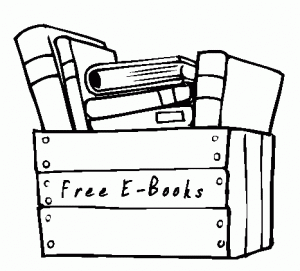 In 1982 I bought my first LP: Echo and the Bunnymen’s Crocodiles. In 1986, I recorded the vinyl to tape so that I could listen to it in my car. In college (1990), I bought the same album on CD. In 2002 I converted that CD to MP3 and I am listening to it on an iPod as I write this article.
In 1982 I bought my first LP: Echo and the Bunnymen’s Crocodiles. In 1986, I recorded the vinyl to tape so that I could listen to it in my car. In college (1990), I bought the same album on CD. In 2002 I converted that CD to MP3 and I am listening to it on an iPod as I write this article.
Six months ago I bought Crocodiles again on lala.com for pennies north of a dollar because I didn’t have my iPod with me. I didn’t “own” that copy, I had “rights” to listen to it while on Lala’s site. When the site closed down recently, my rights evaporated with very little recourse.
Today, I have reverted to buying all of my music on vinyl because inside the sleeve of each new album is a little card with a URL and a code that I can use to download a high-quality, DRM-free, MP3 copy. (In one case, Beck’s Modern Guilt, I found that the digitized copy was of the vinyl itself… clicks, pops, and all.) This is a brilliant scheme! I get the music I want to hear in the formats I prefer (the best sounding and the most convenient). Though I pay a premium for it (albums cost about $20 each), I’m still happy.
Books (and their e-book counterparts) do not yet follow this model, so I will not be buying a lot of e-books this year. It has been noted (by people more astute than I) that printed book has excellent battery life, is portable, and has very high resolution. Not only that, books are transferrable. Most of the books I’ve bought recently have come from Strand or Powell’s (used book sources) or, even more likely, have been gifted by friends or relatives.
Recently, my sister-in-law sent me a used copy of Steinbeck’s Travels with Charley, which I have been enjoying greatly. Because I have an iPad, I visited Apple’s iBooks and Amazon’s Kindle storefronts to see if I could get a digital copy of the book (there are times when I haven’t had the book with me, but wanted to read it). However, for $9 I was loath to buy license a copy of the book that I wouldn’t be able to pass on to someone else when I’m done.
This is the crux of my problem with e-readers and online music services. Though they provide convenience and instant gratification (books and music can be bought directly from the device in an instant), the content is thereafter locked to the device. The DRM, in effect, allows me to buy, consume, delete, but little else.
So, until I can buy a paper copy book that comes with an epub version that I can download and put on my iPad, I’ll rummage through free book bins on my neighbors’ stoops, accept hand-me-downs from literary relatives, occasionally plunk down at the local retailer, and less-frequently buy overpriced, DRM-free epubs from the likes of ebooks.com.